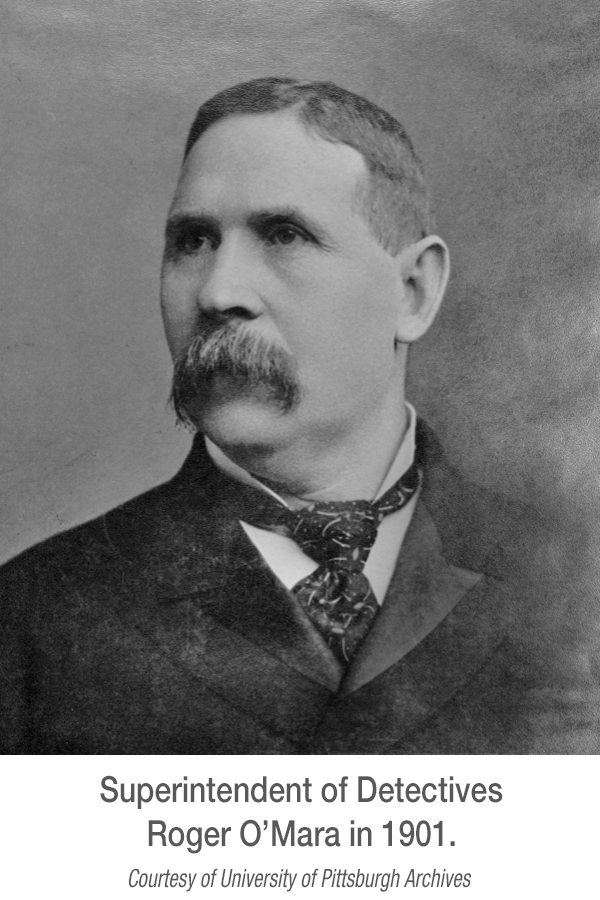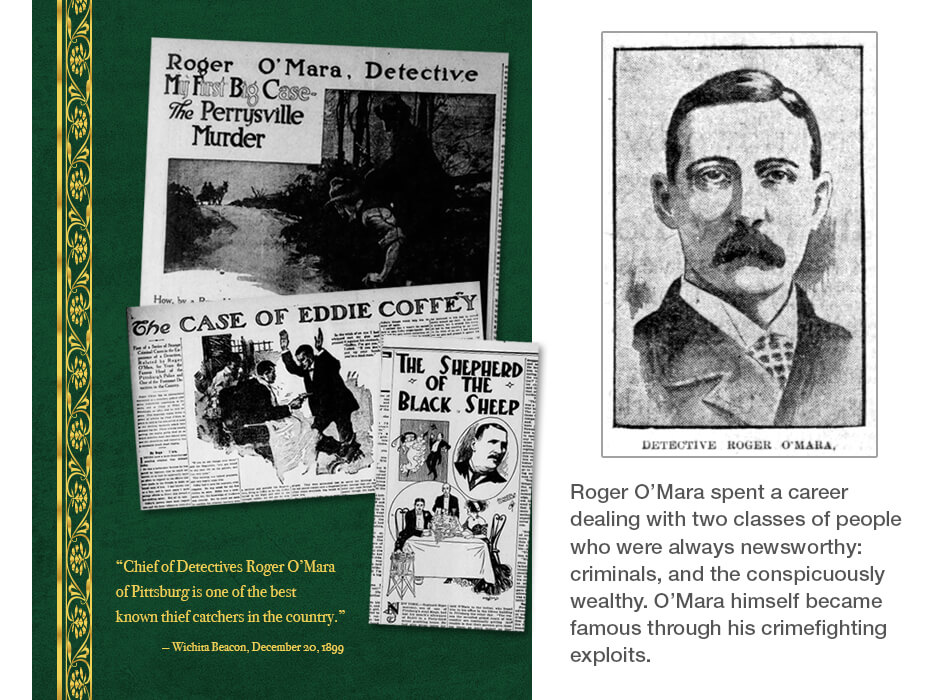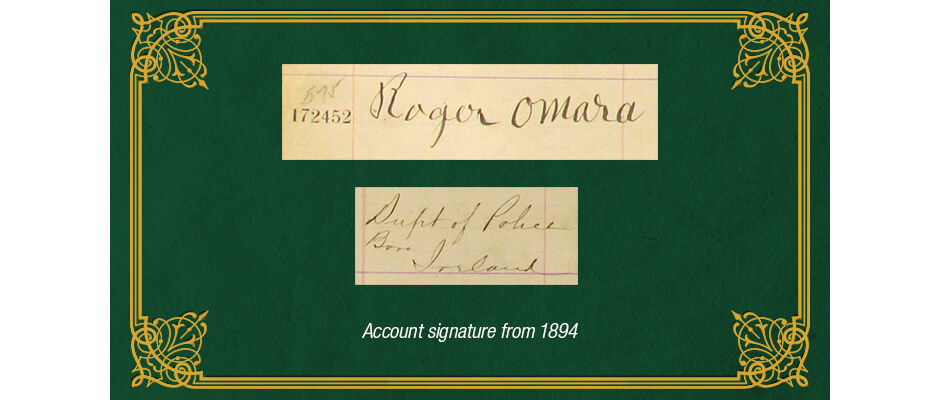Roger O'Mara
1846-1918
Roger O'Mara was Pittsburgh's top cop at the turn of the twentieth century. His long career as a policeman and private detective, coupled with his flair for publicity, made him one of the most well-known law enforcement figures in the United States during his lifetime. He recounted his cases in newspaper features, and his exploits inspired many a detective story in dime-novel crime fiction.
Born May 20, 1846 in Kilkenny, Ireland, O'Mara immigrated to the United States at the age of five with his parents, Martin O'Mara and Margaret Murphy O'Mara. They settled in Pittsburgh, the city that O'Mara would make his lifelong home.
his parents, Martin O'Mara and Margaret Murphy O'Mara. They settled in Pittsburgh, the city that O'Mara would make his lifelong home.
O'Mara worked in the tobacco business before joining the Pittsburgh police force in 1867. He served as a patrol officer, then was selected by Mayor William McCarthy for special duty at a grain elevator. Tasked with investigating a series of robberies and breaking up significant criminal gang activity in the area, O'Mara went undercover in the gang, collecting the evidence to bust them. For his ingenuity and bold police work, he was made a member of the detective force.
In his 34 years on the city's police force, O'Mara rose to Superintendent of Police and Superintendent of Detectives. He solved dozens of headline-grabbing cases, including the arrest of murderers Frederick Meyers and William Murray and the collar of Workingmen's Bank robbers Eddie Coffey and Three-Fingered Jack. He was instrumental in gathering evidence that led to the conviction of the notorious Biddle-Dorman gang. O'Mara also led the capture of escaped convict "Shoe Box" Miller, a robber who broke out of prison and fled to Canada by way of a shoe box.

O'Mara retired from the police force in 1901 and founded his own private detective agency. In this capacity, he was often consulted by Gilded Age Pittsburgh's wealthy families, whose wayward sons had gotten into trouble. His most sensational case proved to be that of Harry K. Thaw. Hired by Thaw's mother, Mrs. William K. Thaw, to aid the legal defense of her son, O'Mara served the Thaws variously as investigator, receiver and guardian.
O'Mara saw up close the ruin that spectacular wealth could produce when the scions of the rich were lavished with too many gifts and too few expectations. "Boys will be boys," said O'Mara, "but they will be better boys if their parents give them less money." On a more somber note, he added, "The mistake most people make is that they think money can settle everything. ...The rich young men of this country would be far and away better off -- mentally, physically and morally -- if their parents made them go to work and earn their own spending money. The hard-working young man rarely has bad companions."
By the early 1900s, O'Mara's name was recognized nationally. He was one of the inspirations for the popular pulp-magazine detective Nick Carter. When he passed away in December 1918 from a stroke, O'Mara was eulogized as a "genuine detective" who was "true as steel to his friends."
O'Mara had a son and eight daughters by his wife, Alice Carroll O'Mara, whom he wedded c. 1873. After her untimely death at age 40 in 1895, O'Mara never remarried. The O'Mara family made their home on Shady Avenue in Oakland.
Roger O'Mara opened a savings account at Dollar Bank in 1894. In addition, he opened accounts in trust for five of his daughters in 1898.